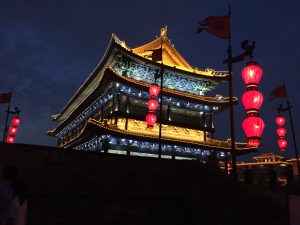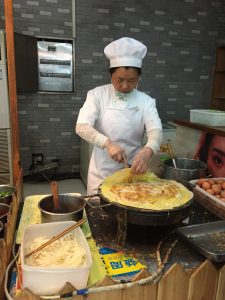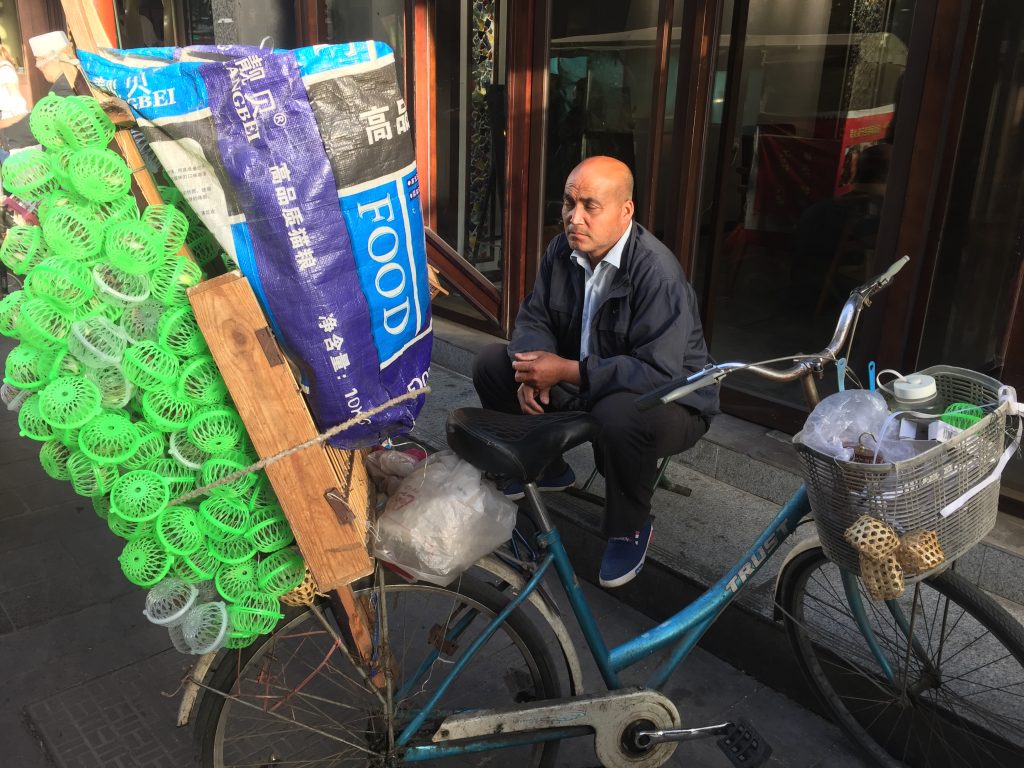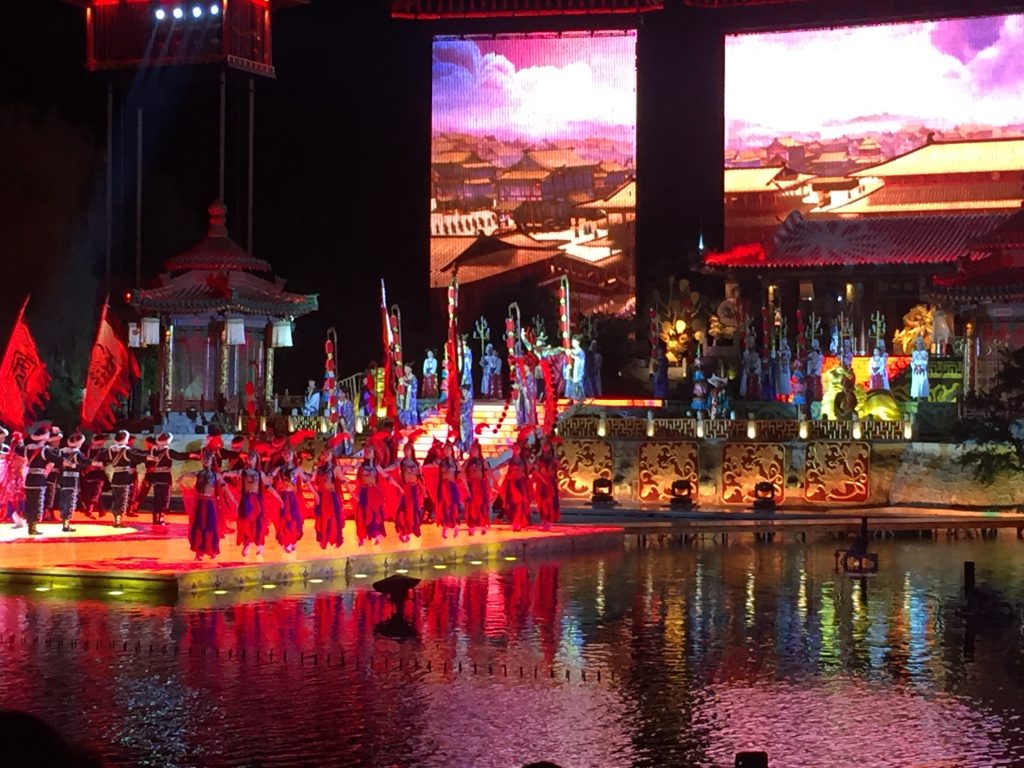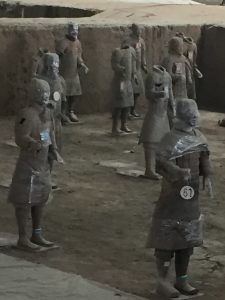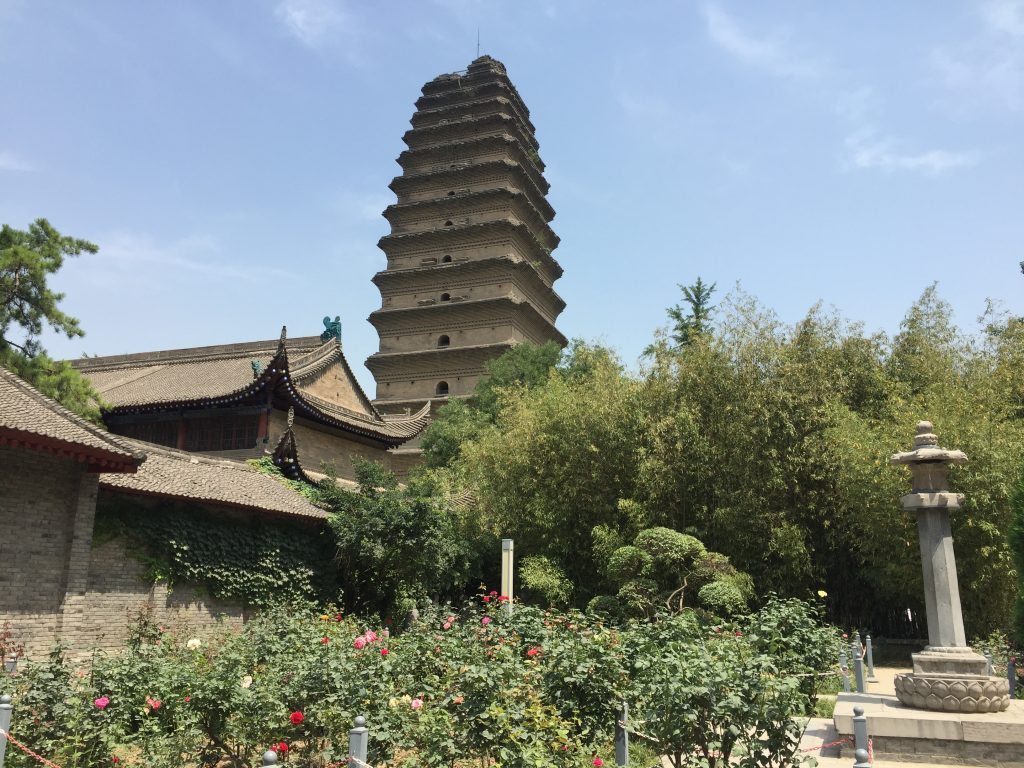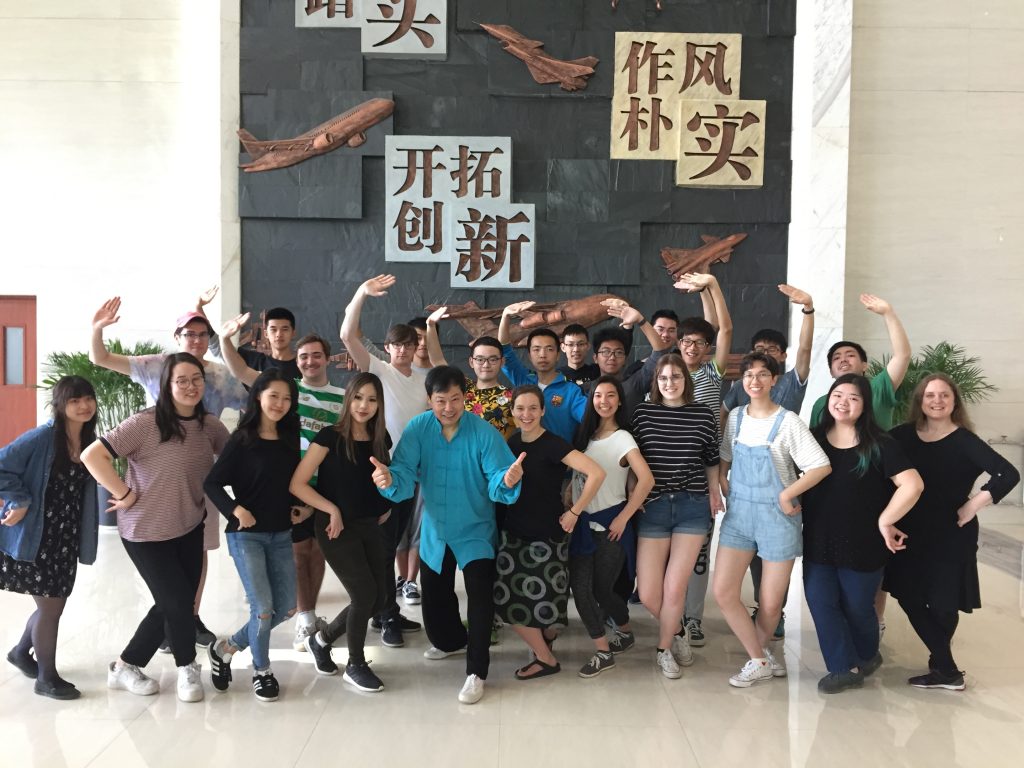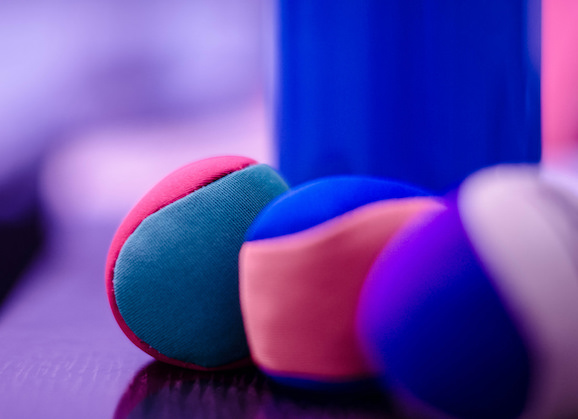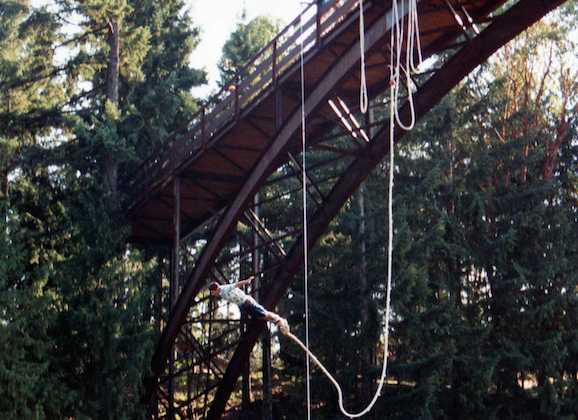Xi’an field school: the ancient, the modern, the tasty
Guest post by Laurel Adam
This summer, I had the opportunity to study Chinese language and culture as part of UVic’s first field school in China, Pacific and Asian Studies 397 (Xi’an), led by Dr. Jun Tian. It was one of the most intensive learning experiences of my life and also the most memorable, with something new every day of the five-week program!
During the field school we lived on campus at Northwestern Polytechnical University (NPU), giving us the chance to get to know our fellow UVic students, Chinese students and the many people who cooked our food, sold us our water, tea, and ice-cream and worked around us every day.
The people there went out of their way to help us feel at home and were very patient with our many language mistakes. The group had varying degrees of language ability ranging from absolute newbies to fluent speakers.
The largest group, including myself, had two semesters of Chinese classes under our belt, which was a very elementary level. Luckily, we could get by with a few survival phrases and body language. One example is saying “zhe ge” (this one) while pointing.
Our surroundings were filled with community. We woke to the sound of a traditional flute played by an octogenarian near the outdoor ping pong tables. Then, the basketball started. The courts were busy from early morning to midnight with people of all ages and abilities playing together.
When we went to breakfast, there were ladies on the outdoor stage practicing dance, seniors with swords doing martial arts, and foreigners playing really bad volleyball. A stroll in the evening took us past ballroom dancing on the sidewalks, aerobics in the square and my personal favorite: the traditional Chinese opera KTV (karaoke) with live musicians on outdoor benches half a block from the west gate to the university.
Xi’an is unique in China as the ancient capital of 13 dynasties, the terminus of the ancient Silk Road and the starting place of the new One Belt One Road initiative that aims to build infrastructure to recreate the Silk Road routes to Europe. It is a modern, industrial city with a high-tech sector focused on innovation, and everywhere we went we were reminded of its ancient past via architecture, museums, sculpture, art, music and archeological sites. Even the food still had hints of the Silk Road in its spicing and variety. So delicious!
The field school kept up an intensive pace, and the caliber of instruction was high. Our archeology lecturer was the head of a number of excavation sites in Kazakhstan. We learned how to disarm a knife-wielding attacker from a Wing Chung master. We watched a Chinese opera, had a lecture in Eastern vs. Western theatre, and learned to perform a famous Chinese opera figure.
We had a lecture in Tang dynasty ritual music and visited the Bell and Drum towers that used music to signal the beginning and end of each workday and to mark the hundreds of festivals and rites throughout the year. We even had a chance to play traditional instruments, such as erhu and zheng, which have a history of thousands of years.
In addition to Chinese language classes, we learned a calligraphy style from 1600 years ago, and visited Beilin, the Forest of Steles Museum where we saw the Confucian Analects copied by Emperor Xuanzong and carved into stone tablets, as well as the world’s first dictionary and many other steles, and sculptures. I personally loved the traditional Chinese ink painting classes and learning three kinds of traditional Chinese dance.
In addition to our own research topics and immersion language classes, we were treated to lectures by world-class professors and experiential learning in art, culture, sport, calligraphy, Chinese opera, music, history and archaeology, as well as multiple field trips to famous historical sites, museums, neighborhoods, natural wonders, and religious buildings. We were also given the time and freedom to explore the city on our own.
With that kind of pace and variety offered up to us over a five-week period, we were able to truly benefit from a shift in thinking, taking us one step closer to a true understanding of the underpinnings of the cultural logic of Chinese language, and bringing us closer to our Chinese friends.
If I were to give you a top memory, it might be riding bicycles on the top of the Ming dynasty city wall at dusk or seeing how the colour of the Qin dynasty terracotta warriors is protected by plastic wrap when they are first excavated.
It might be the Hua Qing Hot Springs with its traces of Tang and Ming dynasties, the crabapple pool built by Emperor Xuanzong for Yang Guifei, his favorite concubine, or the jaw dropping theatrical show of their love that takes place after dark with the lake as the stage and a real mountain and pavilions as the backdrop.
It might be seeing the Shaanxi museum followed by the Great Wild Goose Pagoda, with its astounding fountain show, then wandering up a street filled with giant Tang-themed lanterns and street musicians, or it could be ringing the giant bell and wandering the park-like setting of the Little Goose Pagoda.
It might be visiting the iconic Ming dynasty Bell and Drum towers, then going to Hui street for Muslim food, bartering for a new backpack, and visiting the oldest mosque in China.
It could be dressing in Han clothing for a naming ceremony and a traditional meal, or any of the hands-on classes, lectures and tours, but I think it is something else. I think it is sitting in the school cafeteria with a Canadian friend, a Chinese friend and a friend from Burundi, having a simple meal, and laughing, connecting the world at that small point in time, if only for a moment.
The Pacific and Asian Studies 397 field school to Xi’an was a crash course in historical and contemporary Chinese culture. It improved my listening skills, introduced me to multiple research topics for further study, gave me a taste of art forms and sports that I plan to take up in my spare time, and gave me new friends and an expanded sense of all that can be encompassed in the word community.

